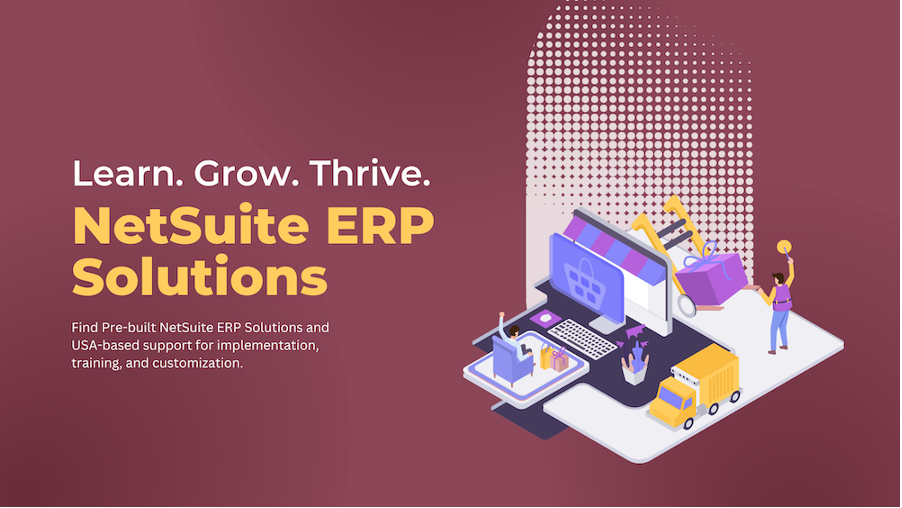Diving into the world of NetSuite can feel like navigating uncharted waters, especially considering its evolution from a humble start-up in 1998 to a cloud computing behemoth it is today. This guide aims to be your compass, simplifying the complexities of NetSuite implementation. Whether you’re transitioning from traditional software or upgrading your current system, understanding the ins and outs of setting up NetSuite is crucial. We’ll break down everything from initial planning stages to post-implementation support, ensuring you have all the tools needed to streamline your business processes efficiently with this powerful software suite.
What is a NetSuite Implementation?
Planning Phase
Implementing NetSuite involves detailed planning. It’s the first step towards aligning NetSuite’s capabilities with a company’s specific needs. This phase demands understanding both the software’s functionalities and the business processes it will support.
Businesses must identify their requirements, setting a clear roadmap for customization and development work. Effective planning ensures that the project stays on track, meeting its objectives without unnecessary delays.
Customization Work
Custom NetSuite development work is crucial for tailoring the system to fit unique business models. This involves modifying existing features or creating new ones to support specific workflows or data management needs.
Companies often leverage NetSuite’s flexibility to develop custom solutions that enhance efficiency and productivity. This phase requires skilled developers who understand both the technical aspects of NetSuite and the operational needs of the business.
Execution and Support
A successful NetSuite implementation doesn’t end at going live. It includes thorough execution of the planned tasks and continuous post-go-live support.
Businesses must monitor system performance, address any issues promptly, and provide users with necessary training and resources. Ongoing support ensures that NetSuite continues to meet evolving business requirements, maximizing the return on investment.
NetSuite Implementation Steps
Discovery Phase
The journey begins with the Discovery phase. Here, teams identify their goals and outline the project’s scope. They also pinpoint which systems need integration. This step lays the foundation for a tailored NetSuite setup.
Businesses must think critically about their needs. They should gather input from all departments to ensure nothing is overlooked.
Planning Phase
Next comes the Planning phase. Organizations establish a timeline and allocate resources accordingly. Process engineering is crucial here, as it sets the stage for a smooth transition.
This phase demands thorough preparation. Teams must balance speed with accuracy to avoid future setbacks.
Execution Phase
During the Execution phase, data migration takes center stage. Teams configure processes and set up accounts in NetSuite. This step transforms plans into action.
It’s vital to stay organized and methodical. Any oversight can lead to complications down the line.
Training
Training ensures user adoption. By offering courses and workshops, companies empower their staff with the knowledge needed to navigate NetSuite effectively.
Investing in training pays off. It significantly reduces resistance and enhances productivity.
Testing Phase
The Testing phase focuses on Use-Case and User Acceptance Testing. These tests verify that NetSuite meets specific business requirements.
Thorough testing uncovers any issues early on. It ensures that the system functions as expected in real-world scenarios.
Go-Live
The Go-live phase marks the official start of using NetSuite for daily operations. It’s a significant milestone that signifies the end of implementation.
Companies should approach this phase with caution. It’s essential to monitor performance closely and address any issues promptly.
Post-Go-Live Support
After going live, Post-Go-Live support becomes critical. It helps resolve any emerging problems and optimizes system performance.
Continuous support ensures that NetSuite remains an asset. It allows businesses to adapt and grow without interruption.
Common ERP Implementation Issues
Stakeholder Buy-In
Lack of buy-in from stakeholders emerges as a significant barrier in the ERP implementation life cycle. Without their full support, projects often struggle to gain the momentum needed for success. They hesitate, questioning the need for a new system, which can halt progress.
A unified vision is crucial from the start. It ensures everyone moves in the same direction. Without it, resistance grows, complicating the process.
Platform Suitability
Choosing the right platform poses its own set of challenges. Not every ERP system fits every business model, leading to functional gaps. These gaps can hinder operations, forcing companies to seek additional solutions.
It’s essential to assess a platform’s capabilities against your business needs carefully. This step prevents future headaches and ensures smoother integration.
Implementation Complexity
The complexity of ERP implementations cannot be overstated. They require teams with years of ERP implementation experience. Without skilled professionals, navigating the intricate process becomes a formidable task.
Experienced teams foresee potential pitfalls, making adjustments along the way. Their expertise is invaluable in managing the project’s scope and scale.
Budget and Timelines
Many ERP projects exceed both budget and timelines. Unexpected issues often arise, pushing costs up and delaying completion.
Planning for contingencies is vital. It helps manage expectations and keeps the project within realistic bounds.
Choosing the Right Implementation Partner
Partner Experience
Evaluating a partner’s experience with NetSuite is crucial. Look for implementation partners who have a proven track record. They should have extensive knowledge in both the technical and functional aspects of NetSuite.
A seasoned partner can navigate common ERP implementation issues with ease. Their experience ensures a smoother transition for your business.
Track Record
It’s essential to check the partner’s history of successful projects. Focus on their customer satisfaction levels. High satisfaction rates indicate reliable and effective implementations.
Partners with a strong track record often have refined processes. These processes contribute to the success of your implementation project.
Support and Training
Ongoing support and training are key for post-implementation success. Choose partners who offer comprehensive training programs. They should also provide continuous support to address future challenges.
This support minimizes disruptions in your operations. It ensures that your team can use NetSuite effectively.
Industry Understanding
Selecting a partner who understands your industry is vital. They should be familiar with industry-specific challenges and requirements. This knowledge allows them to tailor solutions that fit your unique needs.
A NetSuite partner with industry insight can enhance the effectiveness of your ERP implementation project.
Customized Solutions
Look for partners offering customized solutions. These solutions should align with your business requirements. Customization ensures that the software works for you, not against you.
Tailored solutions maximize the benefits of your NetSuite investment. They allow for flexibility as your business grows and evolves.
Why Choose Anchor Group for NetSuite Implementation?
Expert Team
Anchor Group boasts a team of certified experts who specialize in NetSuite solutions. They have years of experience tailoring NetSuite to meet unique business needs.
Their knowledge ensures your implementation is smooth and efficient. They understand common pitfalls and how to avoid them. This expertise saves time and money.
Proven Methodology
Anchor Group follows a proven methodology for NetSuite implementation. This structured approach minimizes disruptions to your business operations.
It includes detailed planning, customization, and testing phases. Each step is designed to ensure that the system aligns with your business objectives. Their method has led to successful implementations for various clients.
Ongoing Support
After implementation, Anchor Group provides robust support. They help with any issues that arise and offer guidance for using NetSuite effectively.
This support ensures you maximize your investment in NetSuite. It also helps your team adapt to the new system quickly.
Choosing Anchor Group means partnering with a team that prioritizes your success. Their expertise, methodology, and support make them an ideal choice for NetSuite implementation.
Closing Thoughts
Navigating the waters of NetSuite implementation can seem like a daunting task, but it’s a journey worth taking for the sake of streamlining your business processes. You’ve got the roadmap now—from understanding what a NetSuite implementation entails to recognizing common pitfalls and picking the right partner for the voyage. Anchor Group stands out as a beacon in these murky waters, guiding you towards successful implementation with expertise and dedication.
Remember, this isn’t just about upgrading your software; it’s about transforming your business to operate at its peak. The choice is yours to make. Take the plunge, choose a partner that aligns with your vision, and set sail towards operational excellence. Ready to navigate the future of your business with NetSuite? Reach out to Anchor Group today and embark on a journey towards seamless integration and unparalleled growth.



